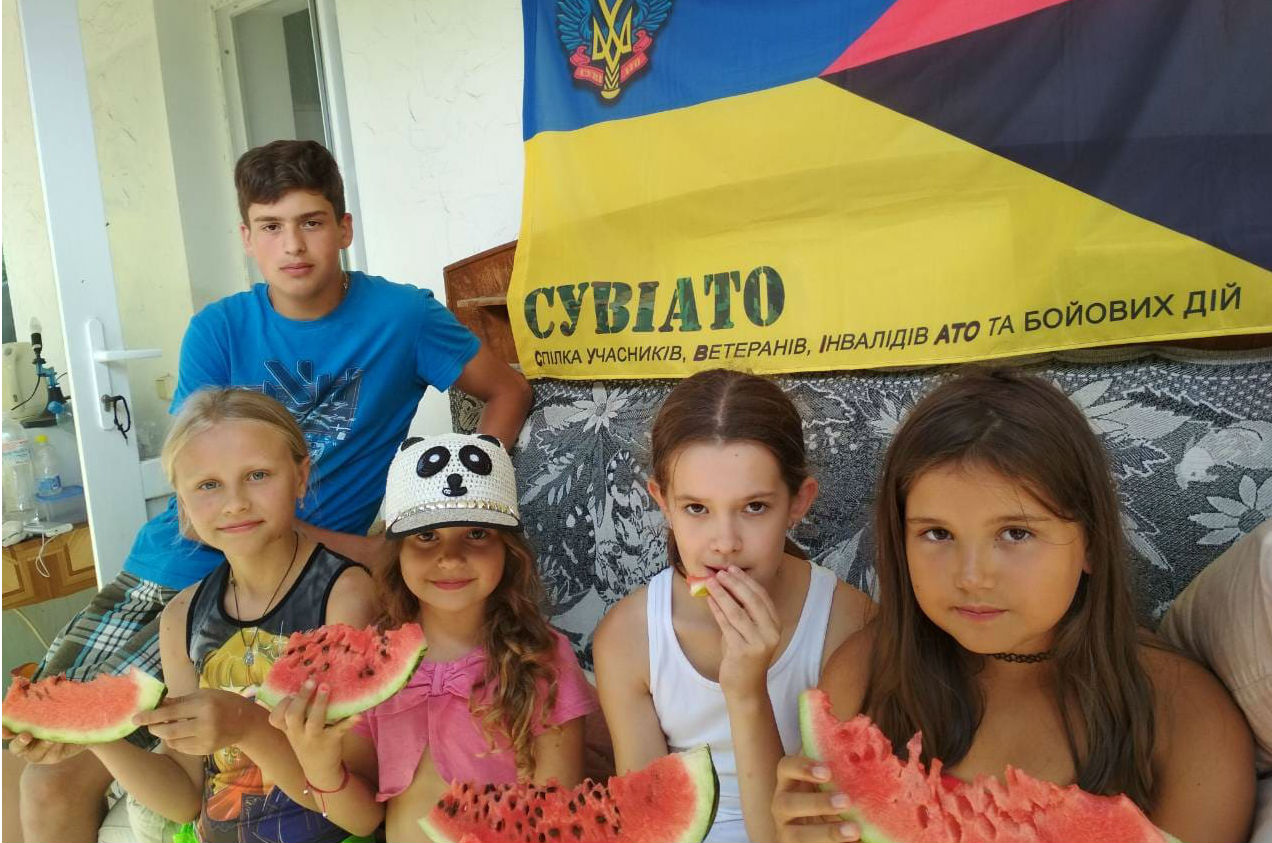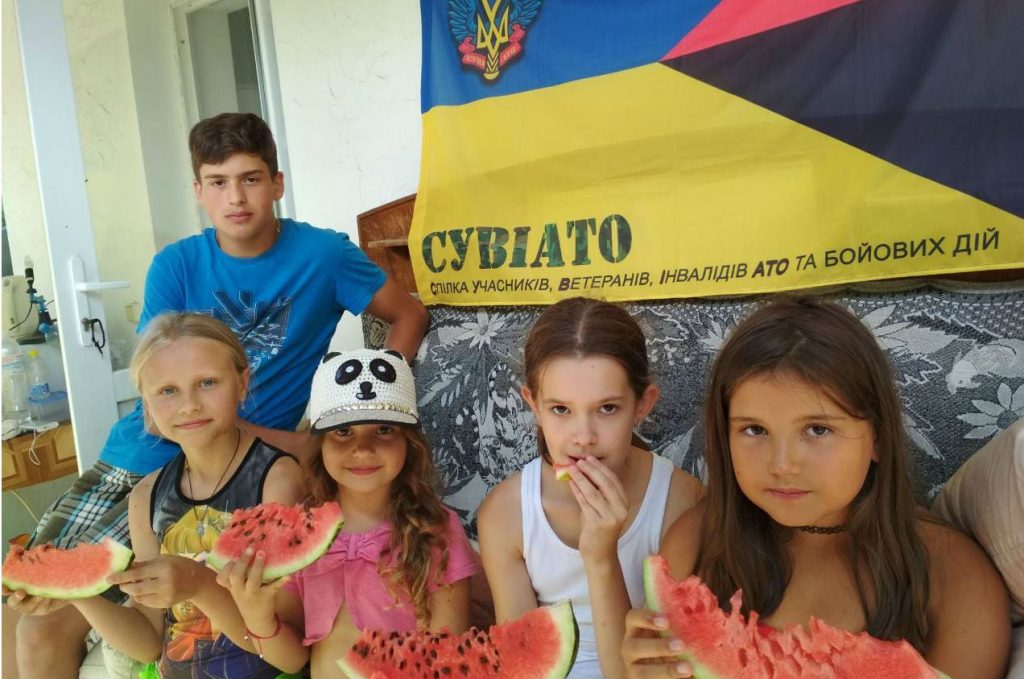
Since the Euromaidan, we have seen extraordinary acts of volunteerism by Ukrainians. In the initial days of Russia’s invasion, citizen volunteers fought on the Donbas front to shore up the Ukrainian Army, which was on the verge of collapse. These citizen soldiers experienced high casualty rates. Volunteers organized supplies for the war and served as medics and nurses. When 1.6 million displaced fled the Donbas, it was largely the volunteers who fed, clothed, and sheltered them.
Ukraine’s volunteerism has served as the foundation for the country’s new civic identity. It has also been seen as problematic, establishing a parallel, second state as an antidote to the weakness and ineptitude of the state.
As the military has rapidly professionalized and attained the capacity to fight and supply the front, the activists of the Euromaidan have moved to fill another critical gap. They are now supporting combat veterans. After four years of war, there is still no systematic provision for Ukraine’s veterans beyond monetary benefits. Access to rehabilitation services is spotty. Reintegration programs—employment, housing, counseling—are few. This new phase of civic engagement continues to highlight the extraordinary efforts of ordinary citizens, and it suggests that volunteerism in Ukraine is changing in important ways.
In June, Kateryna Stetsenko donated her house in southern Ukraine to Suviato (the Union of Participants and Veterans of the ATO), an all-Ukrainian nongovernmental organization dedicated to veterans’ rehabilitation. Kateryna and Suviato were connected by Deputy Minister of Social Policy Natalia Fedorovych when Kateryna approached the ministry with her plan to give.
In the village of Krasne in Kherson Oblast, Kateryna and her late husband, Boris Lamakh, were known for throwing their doors open to gulag survivors to enable them to get back on their feet and to UPA veterans to enjoy rest and reunions. Now they have donated their house to Suviato so that veterans and widows, and their families, can vacation by the sea. Kateryna helps with the children, teaching them poems and playing games with them.
Kateryna is not a wealthy entrepreneur, nor a member of the governing class. What motivates her to give? “It is necessary to nurture respect for the veterans and those who are now defending Ukraine,” she said. Yet, there is also a deeper devotion to Ukraine and its historical legacy of giving, which Kateryna wants to revive. “Philanthropy and giving were part of Ukraine’s culture before 1917. Houses were built and mansions and land donated for the benefit of communities, poor, elderly, and youth. During the Soviet times, this culture of giving was wiped out of our people, the feelings of dignity, trust, and mutual support were destroyed.”
The house was the Lamakh’s legacy to their daughter, Ella, who lives in Kyiv. When I asked Ella about the donation, she said, “It is more important for my own children to understand the importance of charity. My family wants to show others the importance of giving. It is critical for Ukraine’s survival that our society can take care of itself. This is our family legacy.”
The recipient of the donation, Suviato, is part of a larger circle of giving and self-sacrifice. Yuriy Bilokon established Suviato at the beginning of the Donbas war. It began as a movement of combatant volunteers and Euromaidan participants who recognized the existential threat to Ukraine, born out of citizen demand that their government be transparent and accountable. Suviato brought these volunteers equipment at the front, but as the Ukraine military has grown into a competent fighting organization, Suviato focuses on the rehabilitation and reintegration of Donbas war veterans from all over Ukraine.
In addition to working in Kherson Oblast, Suviato partners with an Academy of Medical Science rehabilitation hospital in Kyiv to provide veterans and their families with a place to stay, organizes social events, like bowling and art projects to help with rehabilitation, and helps veterans find work.
Civil society in Ukraine plays an important watchdog role. Its anticorruption efforts are the focus of an effort to fundamentally transform how Ukraine is governed by eliminating the pernicious influence of the oligarchs. However, civil society must also be capable of supporting and partnering with the state to build trust and to fulfill important societal needs. The relationship cannot be just adversarial. It must move beyond establishing parallel, competing structures with the state to complement government capacity. Partnerships like the one between Suviato and the Academy of Medical Science may be an important step in civil society’s maturation.
But there are some risks to private charity. Both Stetsenko and the Suviato staff worry about the illicit capture of charitable giving in Ukraine. At the local level, small NGOs sponsored by oligarchs are used for access to government and international funding. There is also the issue of a rapidly expanding pool of veterans by giving status to people who may have only been at the front for one or two months. And at the national level, Ukraine’s oligarchs dominate philanthropic giving to prioritize societal issues in ways that maintain their status and to secure their access to power. Stetsenko’s example suggests a humble but powerful antidote for others to follow.
Lauren Van Metre is a nonresident senior fellow at the Atlantic Council. She has supported peace processes in the Balkans and Eastern Europe while at the State Department, Department of Defense, and the US Institute of Peace. She tweets @resilienceworks.
Image: The children of veterans enjoy a vacation by the sea in Kherson Oblast, Ukraine, 2018. Courtesy photo.
